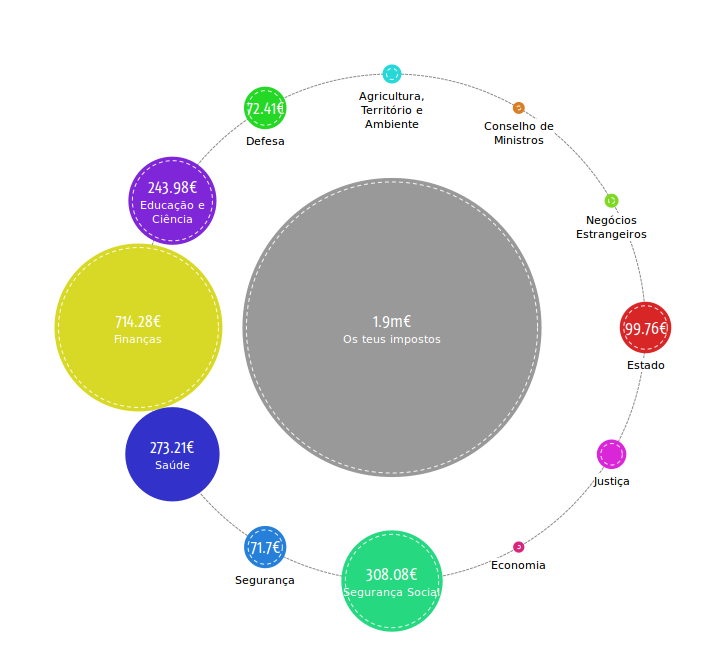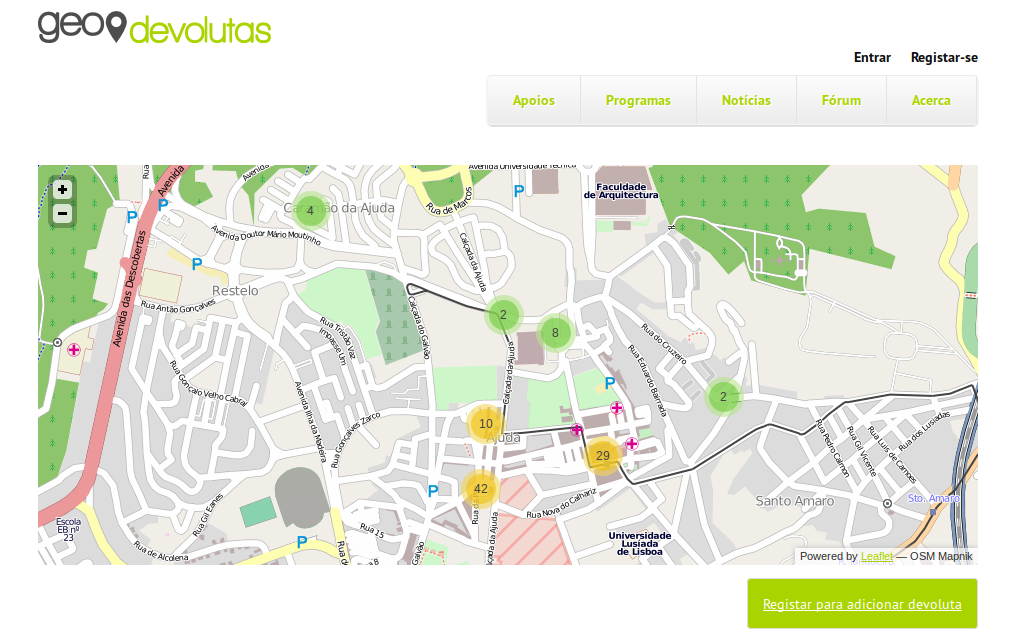[All links lead to Portuguese language pages except when otherwise noted.]
This post is part of our Europe in Crisis [en] special coverage
The atmosphere of growing indignation lived in Portugal in face of austerity measures, imposed by government at the command of the troika, has served as the trigger for more and more initiatives that bring new takes on the potential of digital media in the service of citizens.
Free software against austerity
Two days after the presentation of the Proposed State Budget 2013 [en], on October 17 the National Association on Free Software (ANSOL) put out its “Campo das Cebolas Manifesto“, that denounces a series of “public tenders” for information communications technology that followed procedures “as horrible as they were illegal”, totaling €4 million. The manifesto analyzes the groups “complicit in the deficit” by way of the various people responsible for these and other acquisitions, and concludes:
A responsabilidade política, tal como as cebolas funciona por camadas. Camadas que uma sobre a outra recobrem, escondem, protegem de qualquer incómodo os núcleos em que se tomam as “micro-decisões”.
A culpa não é (sempre) do Governo.
Está na altura das camadas internas responderem pelas suas decisões, ou alternativamente, perderem o poder de decisão. Estes decisores devem justificar a opção pela exclusão de produtos concorrentes nos seus procedimentos de aquisição ou o Governo deve passar a tutelar as compras TIC das respetivas entidades.
Political responsibility, just like onions, works in tiers. Tiers that one on top of the other cover, hide and protect any discomfort with the tiers that make the ‘microdecisions’.
The [central] government is not always to blame.
It is time for internal tiers to respond for their decisions, or alternatively, to lose their decision-making power. These decision-makers should justify the choice to exclude competing products in acquisition procedures or the Government should start overseeing the ICT purchasing of each respective entity.
The Manifesto points to various successful alternatives of open source software adoption by big institutions, like the insurance company Tranquilidade that cut costs on licensing by 80% after adopting Linux in their workplaces.
While the government does not adopt these kind of alternatives, programers, designers and hackers for good have initiatives to develop new platforms that permit the dissemination of information about public spending and public policies, using their own means and following their own wishes.
Where does my money go?
Almost simultaneous with the presentation of the Proposed State Budget for 2013, Nuno Moniz launched the platform “Your state budget“. The application aims to clarify to taxpayers how their contributions in taxes are used, using available maps and budget developments, and including data on Public-Private Partnerships.

Your state budget for 2013 v1.0. Calculation made by unmarried taxpayer, gross income €10,000 and single household.
The graphic shows the distribution of the total value paid in taxes (in the central circle) in each of the existing 12 ministries. The ex-parliamentarian from Bloco de Esquerda and researcher José Soeiro commented on Facebook:
Vai mais dinheiro para a Defesa do que para a Justiça. Cultura desapareceu (há ali uns trocos dentro da Presidência do Conselho…). E a verba para a economia, que é onde deveria estar a criação de emprego (não dizem sempre que o desemprego “é o principal problema do país?”) é inferior à dos Negócios Estrangeiros ou à do Conselho de Ministros. (obviamente, demitam-se!)
More money goes to Defense than on Justice. Culture disappeared (there is some pocket change within the Presidency of the Council…). The allocation for economy, where there should be job creation (don't they always say that unemployment is “the principle problem of the country?”) is less than the Foreign Ministry or the Council of Ministers (obviously, fire yourselves!)
The technology used for the development of the application is Bubbletree Library from the Open Knowledge Foundation, JQuery Library, Raphaël and JQuery Bubble Popup by Max Vergelli.
So many houses without people

GeoDevolutas.org – Mapping empty and abandoned houses in Portugal.
With the eviction of Es.Col.A da Fontinha in April (reported [en] by Global Voices) the debate around abandoned real estate and urban degradation gained new ground. In Porto alone, there are more than 25,000 empty buildings, and it is in this city that GeoDevolutas is being launched on October 20, the last day of Future Places [en] Festival. GeoDevolutas is a collaborative mapping platform for empty properties that was developed by Transparência Hackday Portugal, with the support of Nodes and Manufactura Independente.
Drupal and OpenStreetMaps were used for its implementation, based on the Spanish example CasasTristes.org.

Another initiative that came about recently after the protest “Screw the Troika” on September 15, 2012, was Job for the Boys, a page dedicated to corruption, complaints, business, illicit enrichment, injustice and irregular practices in Portugal.
Future events
The Future Places [en] Festival on digital media and local culture is taking place in Porto October 17-20. The is the Festival's fifth year with artists, journalists, academics and activists taking part in an extensive program [en] of citizen labs and flash-symposiums. It is possible to follow along live on Twitter @futureplacespt and #futureplaces, as well as on Facebook.
On October 25th in Lisbon the second edition of Pirate Culture in the Information Society will take place, with the objective of debating “the ongoing political and economic dispute being fought internationally over information”. The event will bring together various organizations with links to public policies that regulate the production of culture, communications, and knowledge (like Creative Commons Portugal, the Movement Portuguese Pirate Party), and it will be transmitted live via livestream.
Also in Lisbon on October 26-27, Cidadania 2.0 (Citizenship 2.0), a meeting that aims to “stimulate discussion on new forms of communication in the heart of Portuguese society”. Among the case studies to be presented, Portuguese standouts are Demo.cratica, Município de Mirandela no Facebook (The City of Mirandela on Facebook) and the Portal do Governo de Portugal (The Portal of the Government of Portugal) but there will be much more. The event can be followed on Twitter at @cidadania20 and #cid20.
This post is part of our Europe in Crisis special coverage








